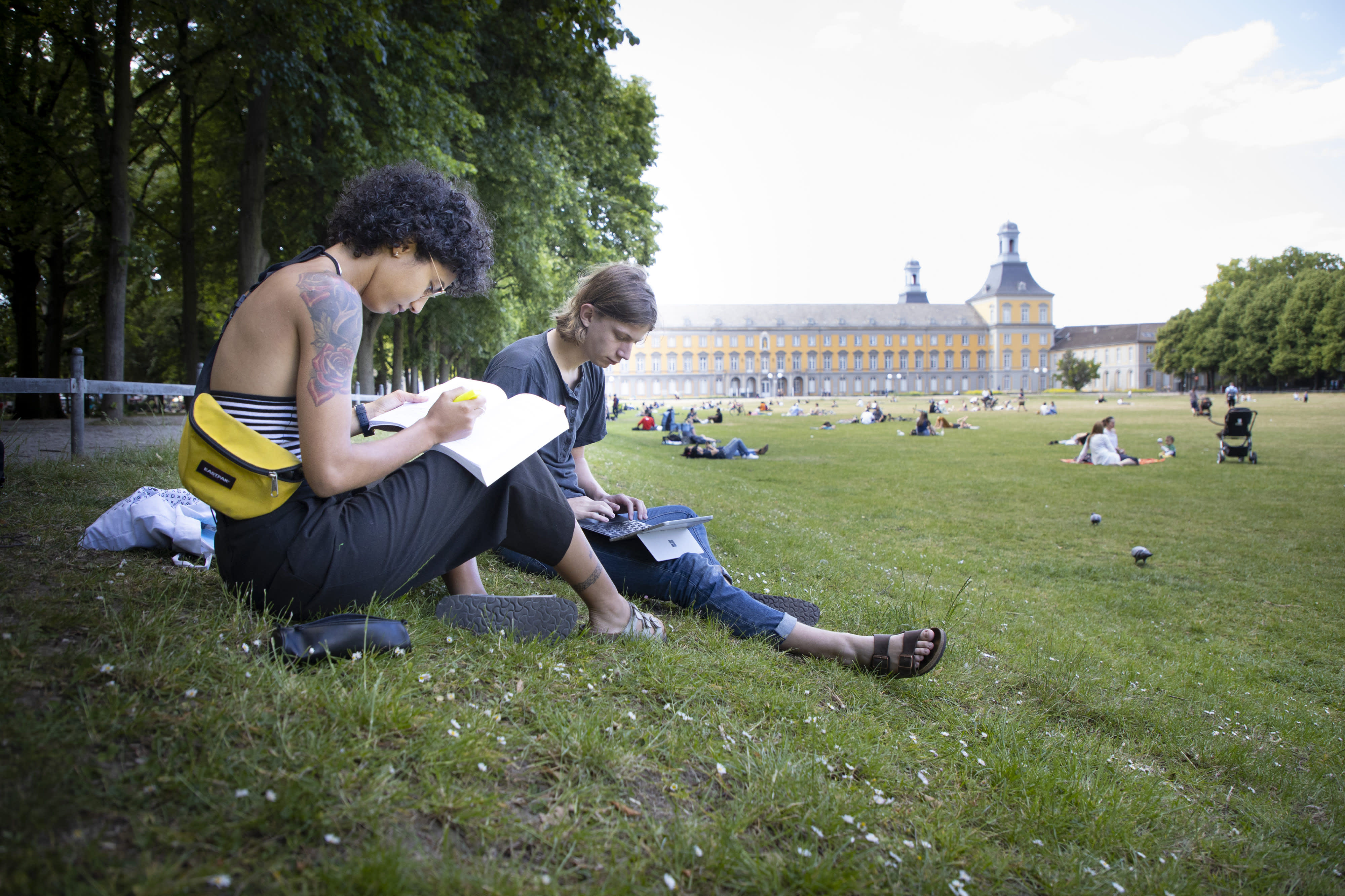
Students sitting next to the University, studying in times of coronavirus.
Ute Grabowsky | Photothek | Getty Images
LONDON — “I felt so afraid and so anxious and at a loss of how to move forward, how am I meant to start a business in the middle of a pandemic?”
This is just one of many testimonies from young people on what is being called the largest financial crisis since the 1930s.
Teresa Carmona, who found herself out of a job in late 2019 at the age of 26, decided it was time to start her own fashion brand. She put together a business plan in January and planned some pop-up events to show her brand across London in March.
“Little did I know that this whole thing that changed the whole world was coming,” she told CNBC.
“I was then not able to go forward with the pop-up. It really kind of pushed everything up in the air and it really took me by surprise. I think suddenly I became really anxious because this idea that I had really clear in my mind was suddenly very vague. I didn’t know how to proceed,” she added.
Starting a business, or simply developing a career, during an economic crisis is always tough, but the coronavirus-induced shock is making it particularly harder for young people.
In the U.K. alone, one-third of those aged between 18 and 24 have lost their jobs or been placed on temporary support schemes with no guarantee of a return to regular employment, according to data from a think tank called the Resolution Foundation. That was more than any other age bracket.
The picture is similar across many parts of the world. In the euro zone, youth unemployment has been rising since March — when lockdown measures were first implemented. The latest numbers show that 18.4% of those aged under 25 in the region are unemployed, compared to 15.7% in February.
This figure masks disparities within the euro area, with Spain and Greece experiencing youth unemployment of approximately 40%, according to data from Eurostat.
In the United States, where many college and high school students traditionally spend their summers working, there were far fewer opportunities available to them this year. This meant there were 1.8 million fewer 16 to 24 year olds in the workforce in July, according to data from the U.S. Bureau of Labor Statistics.
Before the pandemic, young people didn’t feel particularly confident about their futures…the pandemic has amplified that low level of confidence.”
Laura-Jane Rawlings
CEO of Youth Employment UK
There are two main reasons why this crisis has been so hard for young people: They tend to work in contact-sensitive sectors, like hospitality; and they are often in temporary job contracts, which makes them easier to fire.
“We are quite worried about it,” Gita Gopinath, the IMF’s chief economist, told CNBC regarding the difficulties that young people are facing.
In its latest World Economic Outlook, the Fund asked governments to support young people to avoid a wider gap in intergenerational income.
Speaking to CNBC, Gopinath said it is “very important” that governments provide social safety nets so vulnerable groups like young people aren’t suddenly cut off from a steady income.
“But we also need to provide retraining, reskilling so that many of them can be relocated from sectors that are shrinking. Like, for instance, the travel sector, as opposed to sectors that are growing, like digital and e-commerce sectors,” Gopinath said earlier this month.
She also said that targeted hiring subsidies and ensuring continued access to learning for young people still in education are also good government policies.
In order to launch her fashion brand amid the lockdown restrictions, Carmona decided to start her business online. She learned how to make her own website, build up her online presence and kept knitting and sowing. This has allowed her to launch her first physical collection this fall.
But there are other additional challenges that arise from the pandemic for young people.
“It starts with mental health,” Laura-Jane Rawlings, founder and CEO of the not-for-profit Youth Employment UK, told CNBC.
“Before the pandemic, young people didn’t feel particularly confident about their futures, they didn’t feel they would find a good job where they lived,” she said, and “the pandemic has amplified that low level of confidence. It’s amplifying some of the existing challenges.”
The pandemic has reduced social contacts and that has impacted the available channels of support for many. In addition, the uncertainty about their future is also a cause of anxiety and stress.
“With all of this it is really daunting and it can feel like nobody is hiring and things aren’t happening for us and we feel really at a loss. And suddenly this picture that we might have had of our future suddenly is really dim,” Carmona said, adding that everyone needs to learn how to adapt to a new reality.
Students in graduate caps and face masks are seen at the entrance to the main building of the Ural Federal University (UrFU) before the graduation ceremony.
Donat Sorokin | TASS | Getty Images




